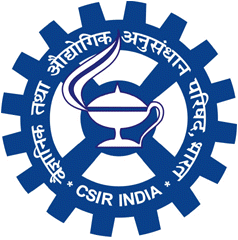Treatments Focus
Intermittent intestinal pain

Have you ever had an abdominal pain which is not clearly a stomach ache, that made you visit the hospital? It is not an uncommon occurrence. According to some studies, about 22-28% of hospital visitations had common complaints of abdominal pain.
However, if you have observed that your pain in the abdomen do keeps coming back repeatedly and at regular intervals, this is the right place to understand more about your condition.
Intermittent intestinal pain can be understood as abdominal pain that may be episodic (intermittent), meaning they occur at irregular intervals. This type of pain may persist for weeks, months or years. This condition can progress to serious illnesses if untreated.
Abdominal pain can be due to potential reasons, commonly due to gas, indigestion or muscle cramp. Whereas, some conditions and their causes need a closer look, a medical examination.
Signs & Symptoms
Common symptoms include:
Sudden sharp or dull pain
Pain accompanied with increased sweating, that makes you cry or bend over in pain
Loss of appetite or weight
Pain can occur around the belly button area
Pain may or may not be associated with eating
Symptoms that require doctor’s attention include:
High fever
Pain that can awaken you from sleep
Blood in stool
or urine
Jaundice
Severe nausea
and vomiting
Difficulty in
swallowing
Pain or swelling of legs or abdomen
Types – depends on severity of pain
- Acute pain: Pain develops in few hours and stays for a few days. Reasons could be – pneumonia, spleen infection and pancreatitis, etc.
- Chronic pain: Also known as intermittent or episodic pain. Pain level is moderate to severe. It is hard to determine. Reasons could be – Gastrointestinal (GI) disorders.
- Progressive: Person experiences severe pains. Reasons – cancer, Crohn’s disease, hepatitis, etc.
Causes & Risk factors
Common reasons that cause this type of irregular abdominal pain include related conditions like:
- Irritable bowel syndrome (IBS)
- Gastrointestinal disease
- Lactose intolerance
- Peritonitis
FAQ's :
Yes, abdominal pain can be hereditary. However, it can be a result of different reasons. Treatment depends on the condition that caused the pain. If the abdominal pain is hereditary, cure cannot be definitive. However, the symptoms can be relieved by pain relieving medicines and alternative therapies.
Abdominal pain as in case of Irritable Bowel Syndrome (IBS) is said to have a genetic component. Studies state that mechanisms involved in gut sensations that are associated with abdominal pain might be a result of genetic variations.
Genetic testing has made this possible. Genetic testing can detect genetic disorders. Advances in science also avail personalised medicine. Personalised medicine is the use of one’s genetic information to prevent, diagnose or treat a disease.
An MRI or CT scan can help diagnose and monitor treatment for abdominal problems. Other tests include blood tests, urine & stool tests, X-rays, ultrasound and endoscopy.
Chronic abdominal pain, if recurrent and untreated can lead to cancer or other serious conditions (not in all cases). If the symptoms of pain do not decrease, please visit your healthcare provider. Healthcare provider will perform thorough tests depending on your symptoms and give a detailed diagnosis and treatment.
References:
- Abdominal Pain: Symptoms. Mayo Clinic. https://www.mayoclinic.org/symptoms/abdominal-pain/basics/causes/sym-20050728 Accessed on 23-03-2022
- Chronic Abdominal Pain. Weill Cornell Medicine. https://weillcornell.org/chronic-abdominal-pain Accessed on 23-03-2022
- Genetics of irritable bowel syndrome. National Center for Biotechnology Information. https://www.ncbi.nlm.nih.gov/pmc/articles/PMC4752571/ Accessed on 23-03-2022
- The role of genetics in IBS. National Library of Medicine. https://pubmed.ncbi.nlm.nih.gov/21333900/ Accessed on 23-03-2022
- Personalized medicine in functional gastrointestinal disorders: Understanding pathogenesis to increase diagnostic and treatment efficacy. National Center for Biotechnology Information. https://www.ncbi.nlm.nih.gov/pmc/articles/PMC6421234/ Accessed on 23-03-2022
Related Articles
Book an Appointment to understand how GenepoweRx can help you in treating
Intermittent intestinal pain
Meet The Doctors
Dr Kalyan Uppaluri
Dr Hima Challa
Your genetics … Your Test ... Your Health Success
It’s always the word of mouth that’s the best advice. Here are some of our…


Our Partners






Professional Partnerships
Government Association

